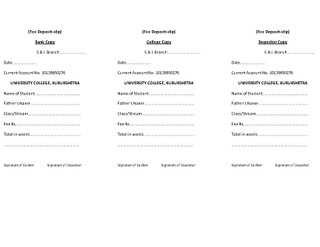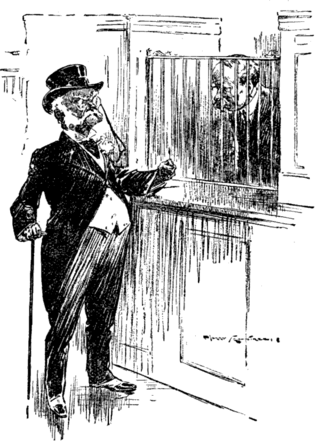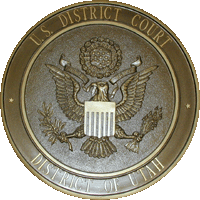
A fee is the price one pays as remuneration for rights or services. Fees usually allow for overhead, wages, costs, and markup. Traditionally, professionals in the United Kingdom receive a fee in contradistinction to a payment, salary, or wage, and often use guineas rather than pounds as units of account. Under the feudal system, a Knight's fee was what was given to a knight for his service, usually the usage of land. A contingent fee is an attorney's fee which is reduced or not charged at all if the court case is lost by the attorney.

A dishonoured cheque is a cheque that the bank on which it is drawn declines to pay (“honour”). There are a number of reasons why a bank might refuse to honour a cheque, with non-sufficient funds (NSF) being the most common, indicating that there are insufficient cleared funds in the account on which the cheque was drawn. An NSF check may be referred to as a bad check, dishonored check, bounced check, cold check, rubber check, returned item, or hot check. Lost or bounced checks result in late payments and affect the relationship with customers. In England and Wales and Australia, such cheques are typically returned endorsed "Refer to drawer", an instruction to contact the person issuing the cheque for an explanation as to why it was not paid. If there are funds in an account, but insufficient cleared funds, the cheque is normally endorsed “Present again”, by which time the funds should have cleared.

A transaction account, also called a checking account, chequing account, current account, demand deposit account, or share account at credit unions, is a deposit account or bank account held at a bank or other financial institution. It is available to the account owner "on demand" and is available for frequent and immediate access by the account owner or to others as the account owner may direct. Access may be in a variety of ways, such as cash withdrawals, use of debit cards, cheques and electronic transfer. In economic terms, the funds held in a transaction account are regarded as liquid funds. In accounting terms, they are considered as cash.

Liquidated damages, also referred to as liquidated and ascertained damages (LADs), are damages whose amount the parties designate during the formation of a contract for the injured party to collect as compensation upon a specific breach. This is most applicable where the damages are intangible.

Penal damages are liquidated damages which exceed reasonable compensatory damages, making them invalid under common law. While liquidated damage clauses set a pre-agreed value on the expected loss to one party if the other party were to breach the contract, penal damages go further and seek to penalise the breaching party beyond the reasonable losses from the breach. Many clauses which are found to be penal are expressed as liquidated damages clauses but have been seen by courts as excessive and thus invalid.

Credit card interest is a way in which credit card issuers generate revenue. A card issuer is a bank or credit union that gives a consumer a card or account number that can be used with various payees to make payments and borrow money from the bank simultaneously. The bank pays the payee and then charges the cardholder interest over the time the money remains borrowed. Banks suffer losses when cardholders do not pay back the borrowed money as agreed. As a result, optimal calculation of interest based on any information they have about the cardholder's credit risk is key to a card issuer's profitability. Before determining what interest rate to offer, banks typically check national, and international, credit bureau reports to identify the borrowing history of the card holder applicant with other banks and conduct detailed interviews and documentation of the applicant's finances.

An overdraft occurs when something is withdrawn in excess of what is in a current account. For financial systems, this can be funds in a bank account. In these situations the account is said to be "overdrawn". In the economic system, if there is a prior agreement with the account provider for an overdraft, and the amount overdrawn is within the authorized overdraft limit, then interest is normally charged at the agreed rate. If the negative balance exceeds the agreed terms, then additional fees may be charged and higher interest rates may apply.
A line of credit is a credit facility extended by a bank or other financial institution to a government, business or individual customer that enables the customer to draw on the facility when the customer needs funds. A financial institution makes available an amount of credit to a business or consumer during a specified period of time.
Authorization hold is a service offered by credit and debit card providers whereby the provider puts a hold of the amount approved by the cardholder, reducing the balance of available funds until the merchant clears the transaction, after the transaction is completed or aborted, or because the hold expires.
Banking in the United Kingdom can be considered to have started in the Kingdom of England in the 17th century. The first activity in what later came to be known as banking was by goldsmiths who, after the dissolution of English monasteries by Henry VIII, began to accumulate significant stocks of gold.
Consumer credit risk is the risk of loss due to a consumer's failure or inability to repay (default) on a consumer credit product, such as a mortgage, unsecured personal loan, credit card, overdraft etc..
A bank fee or a bank charge includes charges and fees made by a bank to their customers exclusive of interest payments. In common parlance, the term often relates to charges in respect of personal current accounts or checking account.

A credit card is a payment card, usually issued by a bank, allowing its users to purchase goods or services, or withdraw cash, on credit. Using the card thus accrues debt that has to be repaid later. Credit cards are one of the most widely used forms of payment across the world.

Office of Fair Trading v Abbey National plc and Others[2009] UKSC 6is a judicial decision of the United Kingdom Supreme Court relating to bank charges in the United Kingdom, with reference to the situation where a bank account holder goes into unplanned overdraft.
A take-or-pay contract, or a take-or-pay clause within a contract, is a payment obligation agreed between a business customer and its supplier. With this kind of contract, the customer either takes the product from the supplier or pays the supplier a penalty. For any product the company takes, it agrees to pay the supplier a certain price, say $50 per ton. Furthermore, up to an agreed-upon ceiling, the company is required to pay the supplier even for products it does not take. This "penalty" price may be lower, say $40 a ton. Take-or-pay clauses are common in the energy industry and, in particular, for gas sales; see volume risk. The High Court in England and Wales recognises such clauses as "a familiar provision in commercial contracts", but also notes that they have been a source of commercial dispute "for more than 100 years".
Financial law is the law and regulation of the commercial banking, capital markets, insurance, derivatives and investment management sectors. Understanding financial law is crucial to appreciating the creation and formation of banking and financial regulation, as well as the legal framework for finance generally. Financial law forms a substantial portion of commercial law, and notably a substantial proportion of the global economy, and legal billables are dependent on sound and clear legal policy pertaining to financial transactions. Therefore financial law as the law for financial industries involves public and private law matters. Understanding the legal implications of transactions and structures such as an indemnity, or overdraft is crucial to appreciating their effect in financial transactions. This is the core of financial law. Thus, financial law draws a narrower distinction than commercial or corporate law by focusing primarily on financial transactions, the financial market, and its participants; for example, the sale of goods may be part of commercial law but is not financial law. Financial law may be understood as being formed of three overarching methods, or pillars of law formation and categorised into five transaction silos which form the various financial positions prevalent in finance.

Palmer v. Kleargear.com, no. 13-cv-00175, is a 2013 US federal lawsuit in which an internet retailer was sued by two of its customers after it billed the customers for $3,500 following a negative review. The retailer, Kleargear.com, specializes in nerd apparel, geek toys, gadgets and office toys; it is owned by Paris-based Descoteaux Boutiques. The plaintiffs charged the company with violating the Fair Credit Reporting Act, defamation and intentional infliction of emotional distress. In March 2014, the district court entered a default judgment for the plaintiffs, and in June 2014 awarded damages of $306,750. As of 2015, the Palmers continue to attempt to collect the judgment.

Penalties in English law are contractual terms which are not enforceable in the courts because of their penal character. Since at least 1720 it has been accepted as a matter of English contract law that if a provision in a contract constitutes a penalty, then that provision is unenforceable by the parties. However, the test for what constitutes a penalty has evolved over time. The Supreme Court most recently restated the law in relation to contractual penalties in the co-joined appeals of Cavendish Square Holding BV v Talal El Makdessi, and ParkingEye Ltd v Beavis.

Cavendish Square Holding BV v Talal El Makdessi[2015] UKSC 67, together with its companion case ParkingEye Ltd v Beavis, are English contract law cases concerning the validity of penalty clauses and the application of the Unfair Terms in Consumer Contracts Directive. The UK Supreme Court ruled on both cases together on 4 November 2015, updating the established legal rule on penalty clauses and replacing the test of whether or not a disputed clause is "a genuine pre-estimate of loss" with a test asking whether it imposed a proportionate detriment in relation to any "legitimate interest" of the innocent party.

Chime Financial, Inc. is a San Francisco–based financial technology company that provides fee-free mobile banking services through two national banks, Stride Bank and The Bancorp Bank.









